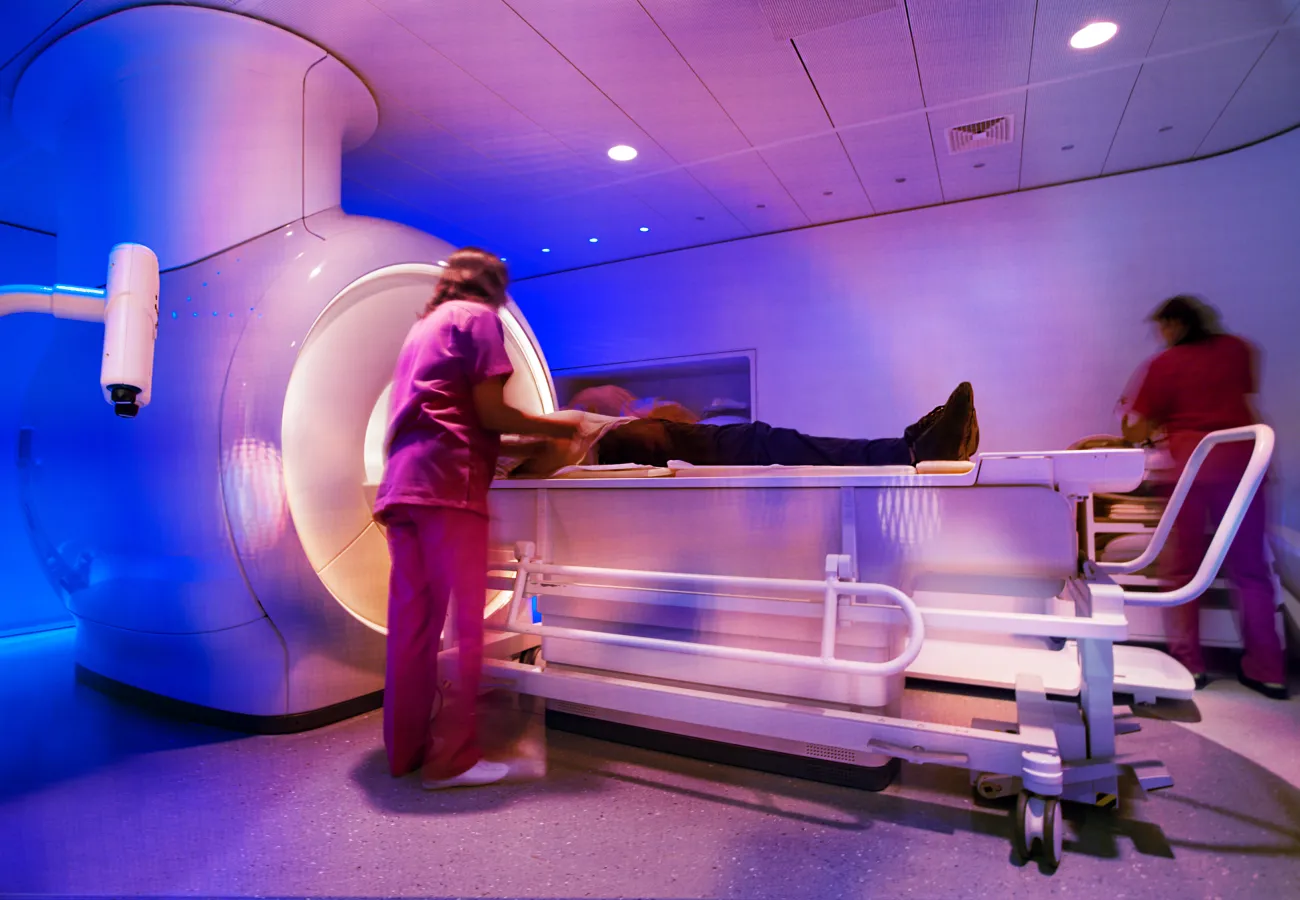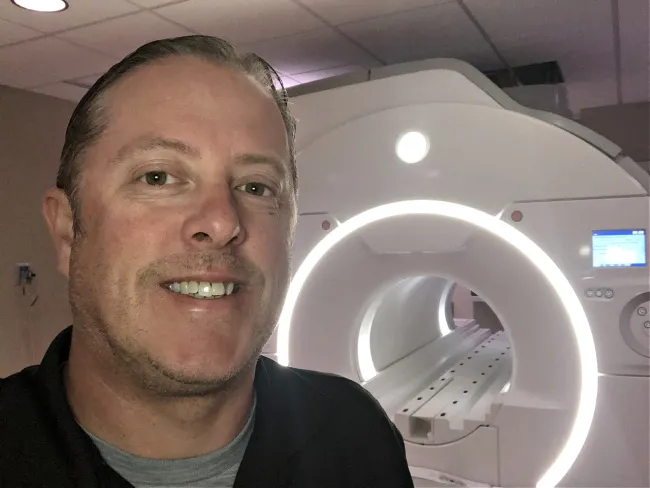
MRI Tech: Job Description & Career Information

Responsibilities
From maintaining communication with radiologists and other professionals with clinical experience, to paying close attention to detail during scans, an MRI specialist or technician has a variety of job responsibilities. In a typical day, an MRI tech will:
- Consult with the radiologist
- Calibrate and adjust equipment for each image
- Communicate with patient to go over medical history and answer questions
- Make sure the patient gets into and maintains the right position using immobilization or support devices
- Prepare contrast agent and inject via IV
- Minimize radiation exposure to patient, self and other staff
- Monitor patient’s well-being during scan
- Evaluate MRI scan for quality
- Maintain imaging equipment
- Assist with clerical functions
Becoming an MRI Technician: FAQs
The bottom line:
If you think you would enjoy working directly with patients and want to be a part of a fast-paced medical environment, consider this career. You’ll get the satisfaction of helping doctors diagnose medical conditions while earning a good salary as an allied health professional. That's why it's one of SkillPointe's top-paying trade jobs. And we can help you find an MRI tech program or job that makes sense for your life.

How I became an MRI technician
Joseph Seibert admits he had "no clue" what he wanted to do when he was a younger man. Then he learned about medical imaging technology and shadowed technicians at a local hospital.
"I was amazed with the whole process," he says. "The patient interaction and the tech's ability to calm a person who was hurt and scared, having doctors and nursing staff all working together to treat someone ... After one day, I knew I wanted to spend my life doing it."
Read more about how one visit changed his career path.
Are there certification requirements for this career?
Find MRI Technician Training In Your Area
Need help reaching your goals?
Explore our Financial Resources page for scholarships, FAQ answers and student support services.

